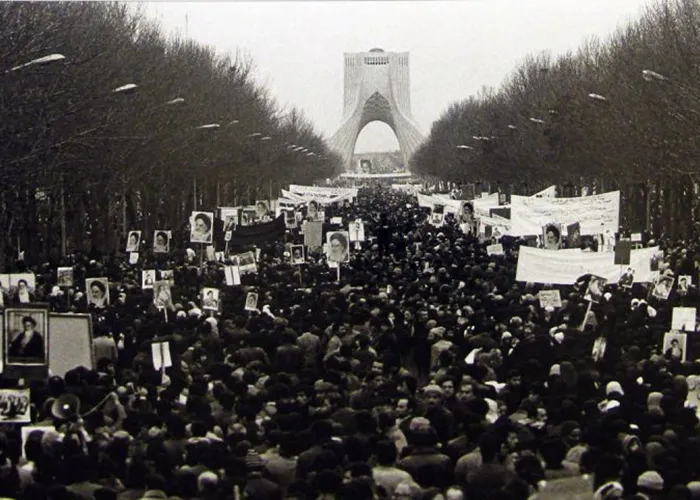Events of the Week – Volume02 Issue06
5th February 2025 – 11th February 2025 (6th Sha’ban – 12th Sha’ban)
This week is rich with significant events in Islamic history, especially in the lives of the Ahlulbayt (a). These milestones are a source of reflection and inspiration for the Muslim community, offering lessons in faith, sacrifice, and devotion.
10th February 2025 – 11th Sha’ban
Birth of Hazrat ʿAlī al-Akbar (a) – 33 AH
On this blessed day in 33 AH, Hazrat ʿAlī al-Akbar (a), the beloved son of Imam al-Ḥusayn (a), was born. He was renowned for his striking resemblance to his great-grandfather, the Holy Prophet Muhammad (s), not only in appearance but also in character, eloquence, and piety. Imam al-Ḥusayn (a) famously said, “Whenever we longed to see the Prophet (s), we would look at ʿAlī al-Akbar.”
From a young age, Hazrat ʿAlī al-Akbar (a) displayed exceptional moral integrity, wisdom, and devotion to Islam. His noble qualities made him a cherished figure among the Ahlulbayt (a) and the Muslim community. He inherited the valour and righteousness of his forefathers, standing as a beacon of faith and virtue.
In the Battle of Karbala, he demonstrated unparalleled bravery and selflessness. As one of the first martyrs from the noble clan of Banu Hāshim, his sacrifice became a defining moment in the struggle for truth and justice. His martyrdom reflects the unwavering dedication of the Ahlulbayt (a) to upholding Islamic principles.
His birth anniversary is commemorated in Iran as Rūz-e Javān (Youth Day), highlighting the vital role of young people in preserving and promoting Islamic values.
Victory of the Islamic Revolution of Iran (1979)
10th February (11th of Sha‘bān) marks the historic anniversary of the victory of the Islamic Revolution of Iran in 1979, a pivotal moment that reshaped the political landscape of the region and beyond. This revolution led to the overthrow of the Western-backed Pahlavi monarchy and the establishment of an Islamic Republic under the leadership of Imam Khomeini (r), who envisioned a government based on Islamic principles, justice, and independence from foreign influence.
The revolution was deeply rooted in decades of resistance against oppression, corruption, and imperialist interventions. The Iranian people, from scholars and clerics to workers and students, united in their demand for self-determination and an end to tyranny. Through widespread protests, strikes, and unwavering resolve, they successfully dismantled a regime that had long suppressed religious and political freedoms.
Beyond Iran, the revolution inspired numerous movements across the world, reinforcing the role of Islam in shaping political and social justice. It became a symbol of defiance against colonialism, authoritarianism, and foreign domination. Today, the victory of the Islamic Revolution continues to be commemorated as a reminder of the power of faith, unity, and perseverance in the pursuit of justice and sovereignty.
Passing of ʿAllāma Muḥammad Taqī Majlisī (1660 CE | 1070 AH)
On this day, in the year 1070 AH (1660 CE), the esteemed scholar ʿAllāma Muḥammad Taqī Majlisī passed away, leaving behind a profound intellectual and spiritual legacy. He was a distinguished authority in Hadith, Tafsīr (Quranic exegesis), and Islamic jurisprudence, significantly enriching Shia scholarship through his meticulous research and teachings.
ʿAllāma Muḥammad Taqī Majlisī dedicated his life to preserving and disseminating authentic Islamic knowledge, ensuring that future generations had access to the wisdom of the Ahlulbayt (a). He played a vital role in reviving Islamic sciences during a time of political and ideological challenges, producing works that remain valuable to scholars and students of Islam. His emphasis on Hadith authentication and jurisprudential precision greatly influenced subsequent Islamic discourse.
Perhaps one of his most lasting contributions was his role as the father and teacher of ʿAllāma Muḥammad Bāqir al-Majlisī, the compiler of Biḥār al-Anwār, one of the most comprehensive Hadith collections in Shia Islam. His guidance helped shape the intellectual and scholarly development of his son, ensuring the continuity of rigorous Islamic research.
To this day, the works and legacy of ʿAllāma Muḥammad Taqī Majlisī are widely referenced, reflecting his enduring impact on Islamic thought and scholarship.
11th February 2025 – 12th Sha’ban
International Day of Leading Women in Science
Women have played a crucial role in Islamic scholarship and scientific advancement, contributing to fields such as medicine, astronomy, mathematics, and theology. Throughout history, their dedication to knowledge and education has shaped intellectual progress in the Islamic world. This day highlights their remarkable achievements and serves as an inspiration for future generations, emphasizing the importance of women’s contributions to science and scholarship.
Amina al-Sadr (Bint al-Huda)
Amina al-Sadr, known as Bint al-Huda, was a leading intellectual, Islamic scholar, and social reformer. She was instrumental in promoting education for Muslim women, writing extensively on Islamic thought and ethics. Alongside her brother, Sayyid Muḥammad Bāqir al-Sadr, she worked tirelessly for the empowerment of women in the Islamic movement. Her martyrdom at the hands of Saddam’s regime is a testament to her dedication to truth and justice.
Banu Amin Esfahani
Banu Amin was one of the most distinguished female Islamic scholars of Iran in the 20th century. She was a jurist, a teacher of Islamic philosophy, and an expert in tafsīr. Despite the societal challenges of her time, she established religious schools for women, ensuring that female students had access to advanced Islamic education. Her contributions to theology and jurisprudence continue to inspire Muslim women seeking knowledge.
This week in history not only reminds us of the sacrifices of the Ahlulbayt (a) and the transformative power of Islamic revolutions but also highlights the role of scholars—both men and women—in preserving and advancing Islamic knowledge.
editor's pick
news via inbox
Subscribe to the newsletter.




